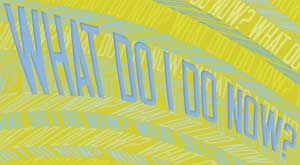features
AN ETHICAL UNIVERSITY
After the police-shooting death of a teenager in Ferguson, Mo., last year, a small group gathered on the Case Western Reserve campus for three sessions to probe a profound ethical issue: What was an appropriate public response to the deadly encounter?
The conversations among faculty, students, staff and community members were part of ongoing Ethics Table lunches about real-world issues that are supported through the Beamer-Schneider endowment. And the underlying question they explored applies to countless other ethical conundrums: What do we do now?
But their question took on new urgency at a meeting in December, less than two weeks after a Cleveland police officer fatally shot 12-year-old Tamir Rice in a neighborhood park.
That winter day, one person listened with head bowed, sobbing silently. A friend gently put her arm around his shoulders and explained, "Rico is Tamir Rice's cousin."
When Rico Lewis, a member of the Cleveland community, then recounted Rice's death, the university met the street, and the cerebral discussion donned a human face.
The moment illustrated why the discipline of ethics is not only a key part of the academic experience, but also important to individual development.
Philosophic ideals underlie Case Western Reserve's 189-year history. But a paradox of teaching ethics in the 21st century is that meaningful discourse on those ideals has never been more difficult. The double-edged promise of new communication technologies, difficult choices over medical treatments, growing economic disparities and other challenges disturb old verities. A cacophony of competing Internet opinions drowns out reasoned debate. Too many social media users dispatch online posts not to inform and persuade, but to insult and enrage.
"A lot of people believe that moral concepts are similar—don't lie, don't steal, don't cheat. That's a good place to start," said Robert P. Lawry, JD, a professor emeritus of law who organized the university's first faculty workshops on teaching ethics in the mid-1990s. "But when you get into applying that in context, it's a bit tougher."
The university seeks to build a campus-wide foundation for thoughtful dialogue and ethical deliberation through courses—including those in the SAGES program—that embed ethics into the curriculum, and in Beamer-Schneider Professorship programs that seek to cultivate ethical learning for all undergraduates. A strong ethics component in the university's professional schools and the global perspective of the Inamori International Center for Ethics and Excellence complement the undergraduate focus.
Outside the classroom, other opportunities abound. For example, the Greek Life staff meets weekly with fraternity and sorority leaders to help them nurture ethical communities. Ethics Table Fellowships allow faculty to devise new ways to integrate ethics in their research and teaching. Provocative visits from artists and global activists spotlight creative responses to ethical issues. Such encounters, including conversations with local residents such as Rico Lewis, can influence both individuals and the broader community.
The stories that follow highlight some of the ways ethical learning permeates campus life by design and helps prepare students to face thorny and complicated issues—whether today or decades from now. When those moments come, Michael Householder, PhD, associate director of the SAGES program, envisions students and alumni ready to provide thoughtful answers to a deceptively simple question: What should we do?






